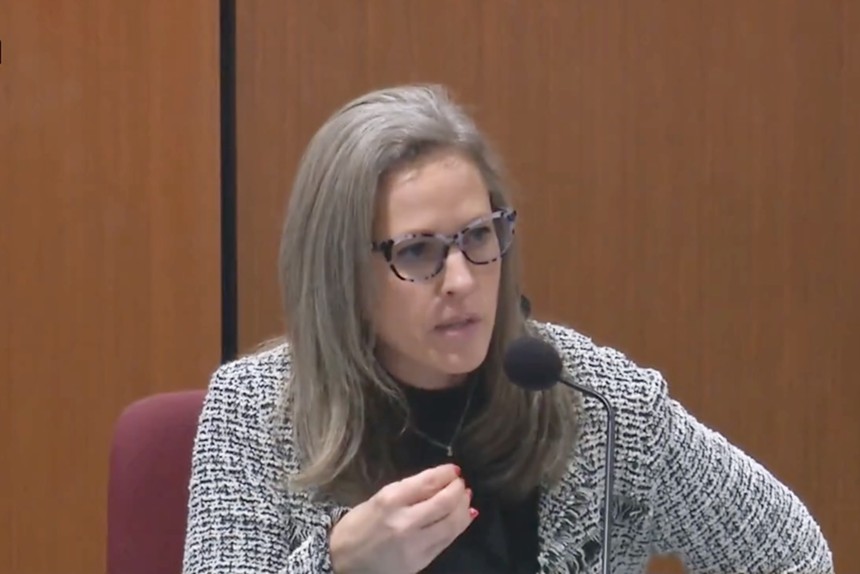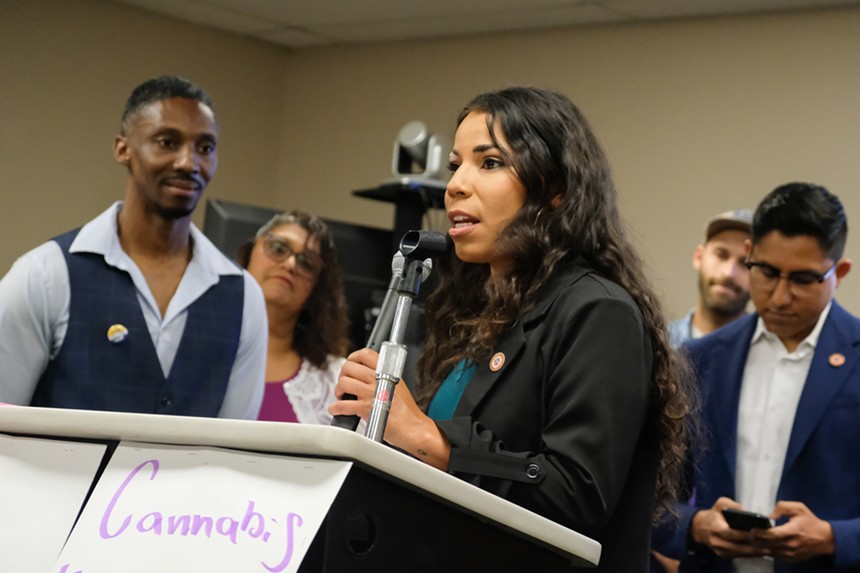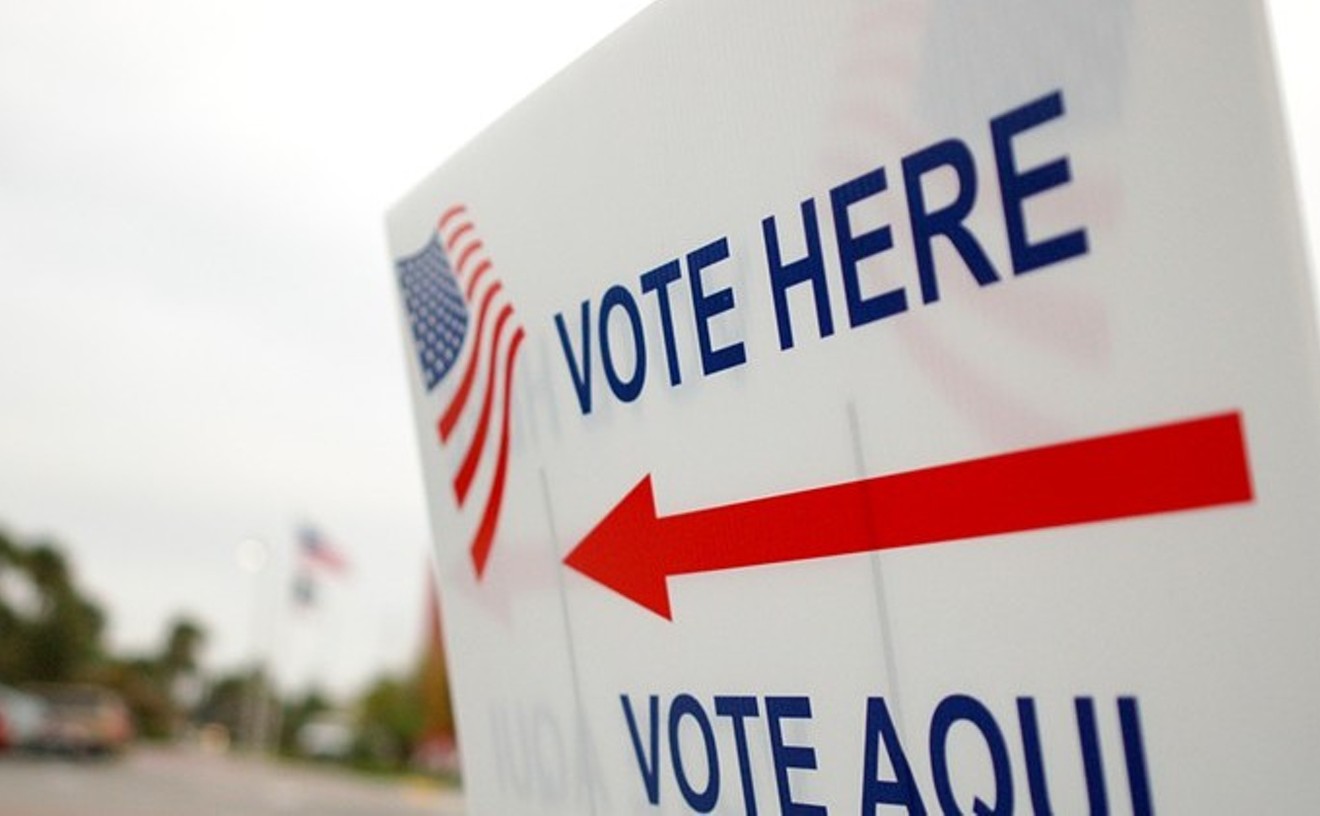On top of the presidential, congressional and state Legislature races, Republican state lawmakers added 11 more measures to the ballot for voters to decide directly. Eight of the measures passed on a party-line vote, while two had support from just four Democrats.
Republicans flooded the ballot with initiatives to work around vetoes from Democratic Gov. Katie Hobbs. Lawmakers can only override a veto with a two-thirds vote in both chambers, while ballot measures need just more than 50% of votes to pass into law.
Ironically, several of the GOP-introduced measures target the process citizens can use to put measures on the ballot themselves. That’s largely seen as a Republican reaction to the likelihood of the Arizona Abortion Access Act reaching the ballot this fall.
Signatures for citizen-led initiatives are due July 3, after which the ballot will swell further. Several other groups are gathering signatures to put initiatives on the ballot, including one that would strike “right-to-work” language from the Arizona Constitution.
For now, here is a guide to the measures referred to the ballot by lawmakers. Five would alter state statutes, while six would amend the state constitution.

A U.S. Border Patrol agent shouts at immigrants who cut into a long line of people awaiting transport from the U.S.-Mexico border on Dec. 6 in Lukeville.
John Moore/Getty Images
The “Secure the Border Act”
HCR 2060: Change to state lawThe most high-profile lawmaker referral on the ballot, House Concurrent Resolution 2060 is a sprawling Republican wishlist of immigration measures. Republicans insist it will help Arizona deal with increased migration at the southern border with Mexico, while critics say it’s a spiritual successor to Arizona’s notorious SB 1070 law that led to widespread racial profiling. The U.S Supreme Court mostly struck down SB 1070 in 2012.
If approved, HCR 2060 would make it a state crime to illegally cross the border — it is currently a federal crime only — and grant enforcement power to state and local officials. Those officials also would receive civil immunity shielding them from lawsuits. In addition, the measure would criminalize undocumented Arizonans who submit false information to apply for public benefits.
HCR 2060 would also make it a more severe crime to knowingly sell fentanyl that results in a person’s death.
The measure and its provisions could be illegal for many reasons. The measure is based on a Texas law, the constitutionality of which is currently being decided by the U.S. Court of Appeals. Additionally, the Latino-focused organization Living United for Change filed a lawsuit alleging the measure violated the Arizona Constitution’s mandate that ballot measures be focused on a single topic.
The measure also could run afoul of a state requirement that all lawmaker ballot referrals include a guaranteed funding source. A conservative estimate suggests HCR 2060 would cost the state hundreds of millions of dollars to implement that hasn’t been reserved in the state budget. Another estimate projects the measure will have an annual price tag of $3.2 billion.

Two Republican-backed ballot measures appear targeted at popular citizen-led initiatives, such as the Arizona Abortion Access for All movement, that successfully bypass the state legislature to change Arizona law.
TJ L'Heureux
Challenging initiatives’ constitutionality
SCR 1041: Change to state lawThis law allows voter-organized constitutional amendments to be challenged in court after the measure is filed with the secretary of state’s office and before it's been placed on the ballot. Due to the costs of mounting ballot initiative campaigns, not to mention defending them in court, critics say this change would make successfully placing a measure on the ballot almost prohibitively difficult.
This initiative appears to be a response to the popularity of the Arizona Abortion Access Act, as well as past ballot measures that legalized marijuana and Prop 208, which gave more funding to public schools by increasing the income tax on people earning more than $250,000.
Changing voter initiative signature requirements
SCR 1015: Change to Arizona ConstitutionAnother measure would dramatically change the way signatures are gathered for citizen-led initiatives, making it more difficult to get them on the ballot.
Currently, the state constitution requires citizen initiatives that alter state law to collect signatures amounting to 10% of the number of votes cast in the last election for governor. For changes to the state constitution, like this year’s abortion rights initiatives, the threshold is 15%. It does not matter where in the state those signatures are collected.
This ballot measure would change the geographic calculus, requiring initiatives to reach the same signature thresholds in every single legislative district in the state. That essentially gives veto power to one outlier district, which critics fear the measure would stop most citizen-organized initiatives from making it to the ballot.

Despite an apparent conflict of interest, state Rep. Shawnna Bolick voted to refer to the ballot a proposed law that appears engineered to protect the job of her husband, Arizona Supreme Court Justice Clint Bolick.
ACTV
End term limits for state Supreme Court justices
SCR 1044: Change to Arizona ConstitutionThis measure would end term limits for state Supreme Court justices and superior court judges, removing most judges from the ballot’s judicial retention section.
Currently, voters have the power to remove judges from the bench at the end of their terms. Under SCR 1044, a judicial review commission would determine which judges behaved poorly enough to merit voters deciding their fates.
Here’s the kicker: It would apply retroactively.
That suggests it’s a naked attempt by Republicans to prevent two Arizona Supreme Court justices, Clint Bolick and Kathryn King, from being voted off the court. Both voted to restore Arizona’s 1864 near-total ban on abortion, which legislators later repealed, and have been the target of a progressive campaign trying to fire the justices through the ballot box. Notably, Bolick’s wife, state Sen. Shawnna Bolick, voted in favor of sending the measure to the ballot.
If approved in November, Bolick and King would remain on the court even if voters decided otherwise.
The measure has been challenged in a lawsuit from Progress Arizona. The organization claims that the measure’s name — “The Judicial Accountability Act of 2024” — is deceptive and misleading and that, because it aims to change more than one amendment of the state constitution, it violates the constitution’s single-subject rule for ballot measures.
Reducing wages for tipped workers
SCR 1040: Change to Arizona ConstitutionIf approved, this measure would allow tipped workers to be paid 25% less than the minimum wage if income from tips passed a certain threshold. Notably, voters in 2016 bypassed the legislature to gradually raise the minimum wage from $8.05 to $12 over a four-year period.
Currently, tipped workers are paid $3 less than minimum wage workers. SCR 1040, dubbed the “Tipped Workers Protection Act,” would lower their wages slightly more.
The restaurant industry lobbied heavily for the bill, with the Arizona Restaurant Association arguing that paying tipped workers less would actually lead them to make more. However, the group Raise the Wage AZ is challenging the measure in court over what it says is a deceptive name.
“(SCR 1040) is a deliberate attempt by the Arizona Restaurant Association and its corporate lobbyists to deceive voters into cutting the wages of tipped service industry workers across the state by 25 percent,” the group said in a press release.

The so-called "Tipped Workers Protection Act" would allow tipped workers like restaurant servers to be paid 25% less than the minimum wage if income from tips passes a certain threshold.
Jacob Tyler Dunn
Declaring emergencies
HCR 2039: Change to Arizona ConstitutionThis measure would give legislators power over state-of-emergency declarations, allowing them to terminate a state of emergency declared by the governor. Additionally, a state of emergency would expire after 30 days unless extended by lawmakers.
The exceptions are war-related emergencies, as well as fire and flood emergencies.
The Arizona Free Enterprise Club, which supports the measure, framed it as a matter of checks and balances in government. The Arizona Public Health Association opposes the bill, noting it would make it harder for leaders to manage emergencies.
“The recovery phase of emergency response would basically not happen. The flow of money and authority to do the recovery work would have ended,” the nonprofit wrote on its website. “There is no way to get a quorum & a majority of legislators to keep reauthorizing emergencies — especially when they’re not in session."
Conviction fee
SCR 1006: Change to state lawThe measure would require a $20 fee to be tacked on to every criminal conviction, placing the money in a fund for spouses or children of first responders and police officers who are killed in the line of duty.
If approved, the family of any killed first responder or officer would receive $250,000. That is in addition to a federal program that gives $422,035 to the families of police officers who die while working. The Arizona pension system also gives a benefit to the surviving family members of police officers, firefighters and corrections officers.
While the measure passed on a party-line vote in the Arizona Senate, it had support from more than half of Democrats in the House.

Phoenix political consultant Chuck Coughlin is pushing an initiative that would oppose House Concurrent Resolution 2033, which would require partisan primary elections for partisan offices.
Gage Skidmore / Creative Commons
Partisan primaries for partisan offices
HCR 2033: Change to Arizona ConstitutionThis measure would amend the Arizona Constitution to require partisan primary elections for partisan offices. It's a response to the voter-organized Make Elections Fair Act, which would turn primaries into nonpartisan contests.
That campaign is being organized by political consultant Chuck Coughlin, one of Arizona’s foremost Republican political consultants until 2017, when he left the party after former President Donald Trump disparaged then-Sen. John McCain and the party moved to the extreme right.
“To win a Republican primary, you just say a bunch of shit you don’t believe,” Coughlin told Phoenix New Times. “Twenty percent of Republican voters turn out in the primary.”
The measure Republicans referred to the ballot would ensure that Republican primaries continue to court extremist candidates.
Property tax refunds for public nuisance
HCR 2023: Change to state lawIf this measure is approved, property owners could apply for tax refunds if their city is not enforcing laws that target unhoused people.
It is another effort taken by Republicans to force cities’ hands in taking an even more severe approach to policing homelessness and comes after property owners in the Zone successfully sued to break up the large encampment in the area.
"Arizonans cannot trust the government to address rampant homelessness,” said Victor Riches, president and CEO of Goldwater Institute.
The measure is opposed by the group lobbying for local governments.
"This measure is setting everyone up to fail,” said Tom Savage, the legislative director of the League of Arizona Cities and Towns. “It will not solve the homelessness crisis or make homelessness encampments go away."

State representative Analise Ortiz warned that a Republican-backed ballot referral to crack down on child sex trafficking could also inadvertently punish victims.
Katya Schwenk
Life imprisonment for child sex trafficking
SCR 1021: Change to Arizona ConstitutionThis proposed constitutional amendment would require life in prison for anyone convicted of child sex trafficking. But critics warn that people who were originally victims of sex trafficking could also be locked away forever after being pulled into a vicious cycle of coercing others.
State Rep. Analise Ortiz failed to get Republicans to amend the legislation to exempt those victims.
“This is something that the experts in sex trafficking know it happens that there are victims who are used to coerce other victims into the trade,” Ortiz said. “That is the harsh reality, and we do not want those minors who have been severely traumatized locked up because of this bill.”
Preventing regulations that cost more than $500,000
SCR 1012: Change to state lawBy far the most boring of the 11 measures – though still consequential – is this one banning any state agency-issued regulations estimated to cost more than $500,000 within five years of their implementation. Unless, that is, they’re approved by the legislature.
Essentially, the measure claws power away from the executive branch of state government and puts it in the hands of the state Legislature.












